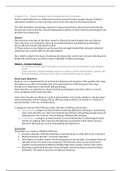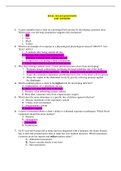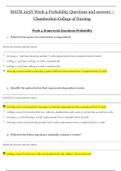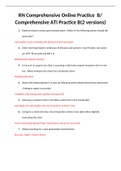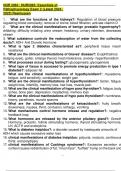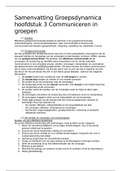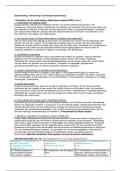Summary
Summary Developmental Psychopathology Chapter 13 - Health-Related and Substance-Use Disorders
- Course
- Institution
- Book
A clear and complete summary of the thirteenth chapter of the book Abnormal Child Psychology (7th edition). Important terms are coloured blue and after each section there is a Section Summary to summarise all the important things. At the end there is a Quiz of MindTap including (!) the answers so...
[Show more]
